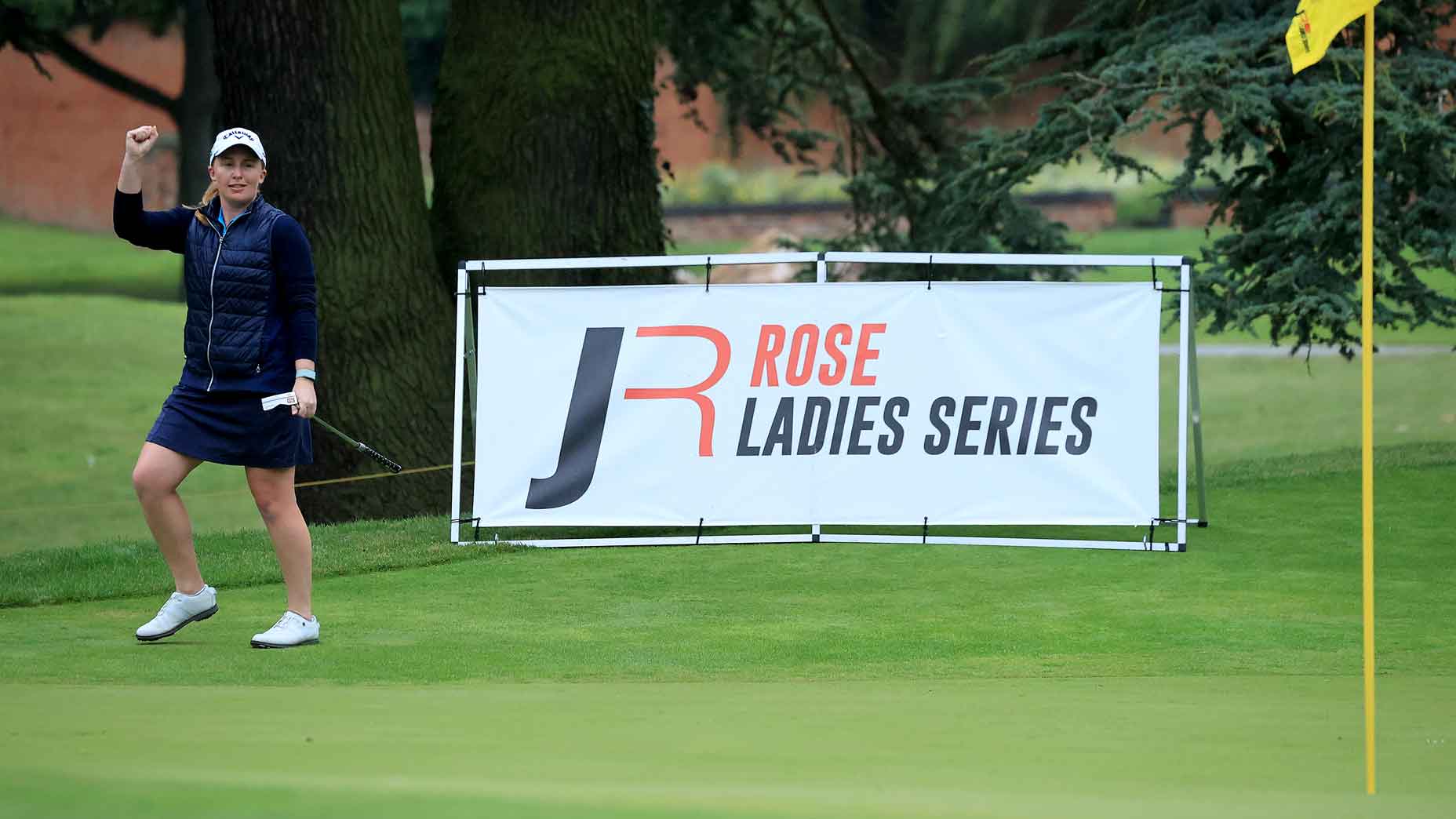Gemma Drysburgh has never seen me play. She didn’t need to. She knew one of the problems.
Drysburgh is one of the lucky ones in the game. Three victories on the Rose Ladies Series. A final-round final grouping last year in Portland. Ridiculous accuracy off the tee. And her grip? That dance we constantly play with our hands? She had that cracked on day one. Literally day one.
“I remember my first golf lesson,” the 28-year-old Scotswoman told me. “… And that’s where I learned to — I remember getting the grip down at that lesson. He taught me interlocking grips, and I’ve done that ever since.”
In short, she could offer help. So I asked for some. Toward the end of our talk this week over beers — she’s also backed by a brewery, so what else would we drink during our interview? — I asked her a simple question, with no easy answer:
I shoot in the middle 80s; I’ve got about a 14 handicap. Without seeing me play, what’s the best tip you could give me to maybe start breaking 80 consistently?
“Well, I don’t know how you manage your game, but a lot of men I play with around that handicap, even lower handicaps than that, I wouldn’t say they manage their course management very well,” Drysburgh said. “And especially men, because they like to go for everything. And I think there’s ways to play par-5s, par-4s that are maybe more on your strengths — maybe sometimes laying up or maybe taking a different club. I think a lot of amateurs also under-club a lot; they don’t take enough club.
“That’s one thing. And then I’d probably say, I’m not sure if you like to practice at all, but if you’ve got an hour to practice, even an hour a week, you know, spend 30 minutes on the range and then make sure you do some short game as well. I think short game doesn’t get enough love a lot of times by a lot of amateurs.”
Maybe she had seen me play. Do I try to bite off more than I can chew? Do I head to the course more often than the range or practice green? Maaaaybe. Throughout our hour together, I also gleaned a few other nuggets.
The practice suggestion led me to ask Dryburgh what her range routine is.
“So I usually don’t spend much more than an hour, an hour and a half on the range if I’ve got a practice session, and I usually like to do some wedges, maybe put some targets out or, you know, laser some targets on the range that are already there and just do some random wedge shots,” Dryburgh said. “And then I’ll go, it depends what I’m working on, I’ll go through the bag from pitching wedge all the way through to driver. And I like to do some maybe shaping of the shots as well, throughout the bag as well.
“And yeah, make sure to do some technical work and then you want to kind of get more target orientated as well.”
Dryburgh has had her teachers, too, among them Catriona Matthew, one of the most accomplished Scottish players in history and a two-time winning captain at the Solheim Cup. When Dryburgh first turned pro, she said, Matthew invited her out for nine holes and lunch, “and I just asked her all the questions I had.
“And she’s always said since then, if you ever need advice, don’t hesitate to contact me.”
And Matthew’s best tip? She’s given a few.
“I think one of the things she said actually, when you come onto the range on the LPGA, you’ll see all these girls that, you know, hit it miles, they’ve got these amazing swings, and you’re like, oh, I don’t know if I belong here, or I don’t know if I’m good enough,” Dryburgh said. “And then she said — I’m quite a similar player to her, I’d say; you know not massively long. And she just said after the round, you look at the scores and you said, oh, you shot three-under and they’ve shot one-over, and you’re like, how has that happened? But, you know, you just got to think, you’ve got good parts of your game that are going to offset maybe their length. Just kind of similar to what my dad said to me as well, just kind of believing in yourself and in your game and just not kind of looking around too much.”
I told Dryburgh I’d struggle to follow Matthew’s second piece of advice.
“Another good one was all the tour reps — on the LPGA, we don’t have as many tour reps as the PGA Tour would, but we do have tour reps that want to give you stuff,” Dryburgh said. “And she said don’t always take everything. Like you need to know your stuff and have your clubs that work for you. And you don’t need to take everything new that comes out and that they want to give you, which I think I did fall into at one point in my career because it’s like, oh, all this stuff, right?”
“Maybe that first week is, let’s fill the bag here,” I said.
“But yeah, because they’re all coming up to you saying, introducing themselves like, oh yeah, let’s try that,” Dryburgh said. “So it’s very easy to get into that trap.”
